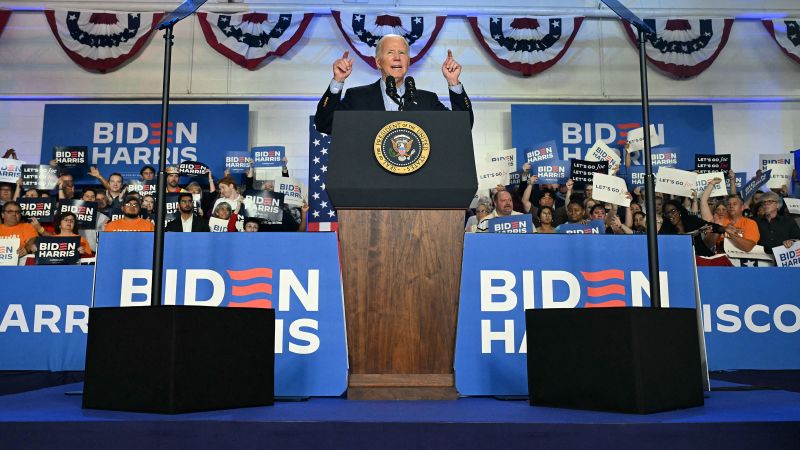
Biden downplays poor debate performance, says it’s not indicative of larger issues
CNN
President Joe Biden presented further excuses and took ownership for his poor debate performance, saying he was “sick” and “feeling terrible.”
President Joe Biden on Friday downplayed his poor performance in last week’s debate, offering additional excuses for the showing and adding that it was his fault alone. The president said in an interview on ABC that he was “sick” and “feeling terrible” before the debate. Asked whether it was a bad episode or a sign of a more serious condition, Biden dismissed those concerns. “It was a bad episode. No indication of any serious condition. I didn’t listen to my instincts in terms of preparing, and I had a bad night,” he said in an interview taped Friday afternoon with ABC News’ George Stephanopoulos. He added, “Because I was sick – I was feeling terrible. As a matter of fact, the docs with me I asked if they did a Covid test, they were trying to figure out what’s wrong. They did a test to see whether or not I had some infection, you know, a virus. I didn’t. I just had a really bad cold.” The conversation marked Biden’s first televised interview since his debate performance, a high-stakes moment for his political future as a mounting list of Democrats – lawmakers, donors and voters – express concerns about the viability of his candidacy. The president said he has not watched a replay of his performance. When he was asked whether he knew how badly it was going, he said it was “nobody’s fault but mine.”

 Run 3 Space | Play Space Running Game
Run 3 Space | Play Space Running Game Traffic Jam 3D | Online Racing Game
Traffic Jam 3D | Online Racing Game Duck Hunt | Play Old Classic Game
Duck Hunt | Play Old Classic Game











